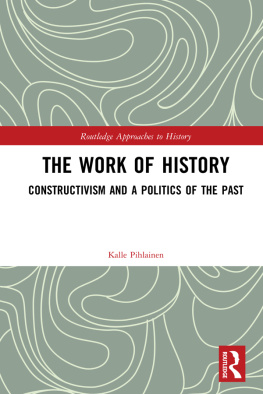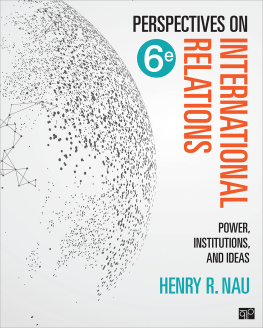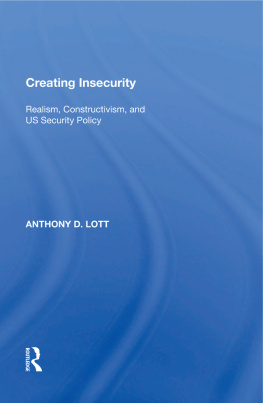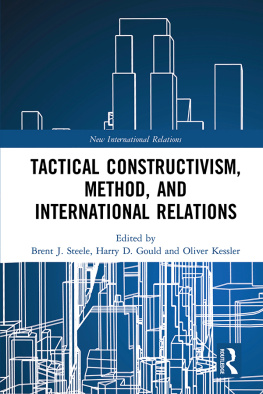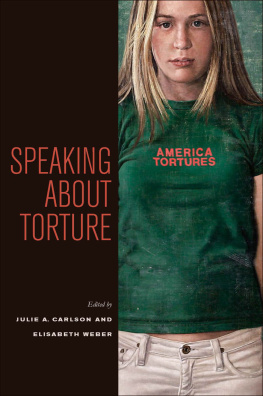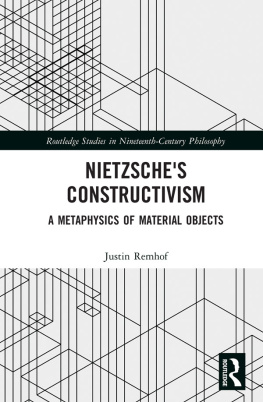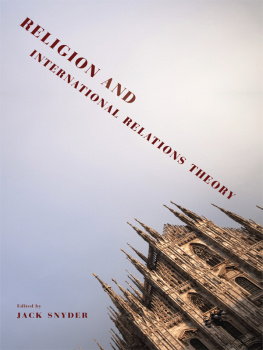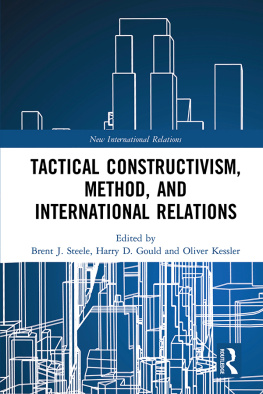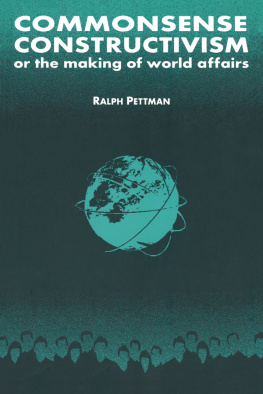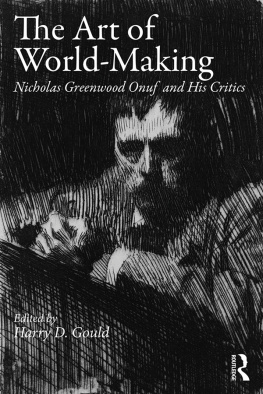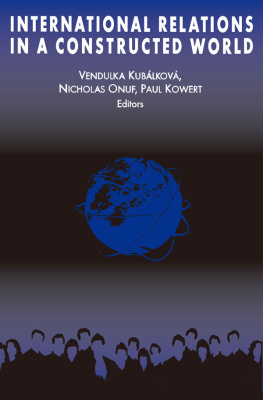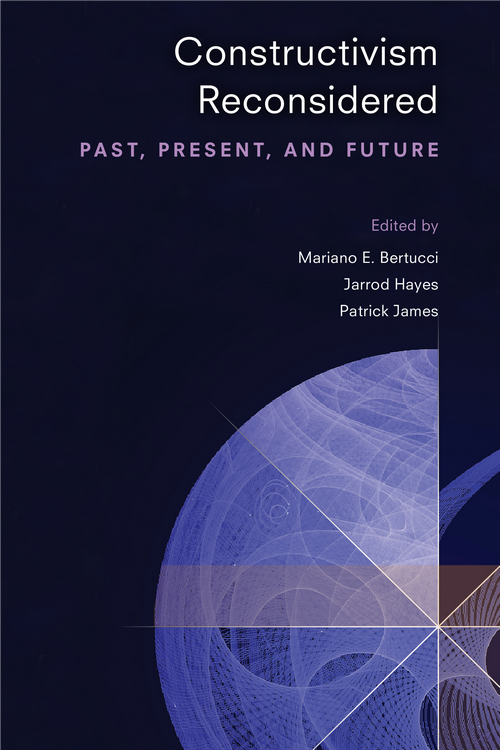
Constructivism Reconsidered
The constructivist challenge to the rational-structural approaches that dominate the study of international relations in the United States lies in the argument that structure is in fact constructed by and through social ideas and practice. The complicated web of international relations is not the result of basic human nature or some other unchangeable aspect, but has been built up over time and through shared ideas, experience, and assumptions. Constructivism Reconsidered is a twenty-first-century primer on the approach, synthesizing the nature of and debates on constructivism in international relations. It examines the (dis)agreement with regard to the meaning of constructivism and to what extent constructivism is regarded as a successful alternative approach to rationalism to explaining and understanding international affairs. The volume explores constructivisms theoretical, empirical, and methodological strengths and weaknesses, and it debates what these say about constructivisms past, present, and future. In that spirit, Contructivism Reconsidered makes a significant contribution by establishing a path for moving forward the constructivist research program in international relations, so as to reach a better understanding of international affairs in general and where constructivism fits in relation to the discipline of international relations in particular.
Mariano E. Bertucci is a Visiting Assistant Professor of International Relations at the Department of Political Science at Loyola Marymount University.
Jarrod Hayes is a Visiting Associate Professor of International Relations in the MIT Department of Political Science and Associate Professor of International Security at the University of Massachusetts, Lowell.
Patrick James is Dornsife Deans Professor of International Relations at the University of Southern California, and president of the International Studies Association, 201819.
Constructivism Reconsidered
Past, Present, and Future
Mariano E. Bertucci, Jarrod Hayes, Patrick James, Editors
University of Michigan Press
Ann Arbor
Copyright 2018 by Mariano E. Bertucci, Jarrod Hayes, Patrick James
All rights reserved
This book may not be reproduced, in whole or in part, including illustrations, in any form (beyond that copying permitted by Sections 107 and 108 of the U.S. Copyright Law and except by reviewers for the public press), without written permission from the publisher.
Published in the United States of America by the
University of Michigan Press
Manufactured in the United States of America
A CIP catalog record for this book is available from the British Library.
Library of Congress Cataloging-in-Publication data has been applied for.
ISBN: 978-0-472-13110-5 (Hardcover : alk paper)
ISBN: 978-0-472-03715-5 (Paper : alk paper)
ISBN: 978-0-472-12376-6 (ebook)
Contents
Nicholas Onuf
Mariano E. Bertucci, Jarrod Hayes, and Patrick James
Mariano E. Bertucci, Jarrod Hayes, and Patrick James
David M. McCourt
Oliver Kessler and Brent Steele
Stacie E. Goddard and Ronald R. Krebs
Audie Klotz
Jordan Branch
Jennifer M. Ramos
Jrmie Cornut
Thomas Jamieson
Charles Glaser
David Blagden
Laura Sjoberg and J. Samuel Barkin
Mariano E. Bertucci, Jarrod Hayes, and Patrick James
Amitav Acharya
This edited volume is the result of efforts from many people. We greatly appreciate those who prepared chapters for this volume as well as all the other participants in the workshop at the University of Southern California (USC) in January 2015. Those who attended the workshop and provided valuable insights that have impacted upon the contents, but are not represented in this book, include Ted Hopf, Brian Rathbun, and Wayne Sandholtz.
Mariano Bertucci would like to especially thank Patrick James and Jarrod Hayes for co-organizing and convening an outstanding group of scholars to discuss these issues and for working closely with him in preparing this volume. Mariano also would like to express his gratitude to Ludovico Feoli, executive director of the Center for Inter-American Policy and Research (CIPR) at Tulane University, for making available valuable resources to help build the dataset upon which chapter 2 is based. Mariano, Jarrod, and Pat also thank Cecily Montgomery, Parker Bradley, Tom Jamieson, and Mayagez Salinas for their outstanding work as research assistants on that chapter.
Jarrod Hayes thanks Patrick James for motivating this whole project. He has enjoyed working with both Mariano and Pat. Jarrod also is grateful to his friends and colleagues for their participation in the conference at USC and their resulting contributions, and to his wife and daughters Janelle, Isabelle, and Mackenzie for their support and inspiration.
Patrick James appreciates the support USC provided through its Center for International Studies (CIS), which enabled the workshop to take place in January 2015. Exchanges back and forth at that event produced a host of improvements throughout the chapters of this volume. Pat is grateful to Indira Persad at CIS for her valuable work in organizing the above-noted workshop. He also appreciates very much the abilities of Mariano and Jarrod, who have been outstanding in their work throughout this project.
Finally, the editors are very grateful to the University of Michigan Press for their splendid work on this volume.
The Dinosaur Speaks!
Nicholas Onuf
When it comes to constructivism in International Relations (IR), I am one of the dinosaurs. We dinosaurs are still in a reasonably good state of preservation, and still talking. When a dinosaur speaks, we generally expect the old fossil to talk, well, like a dinosaur. And so I shall.
There are not very many of us; Alexander Wendt, Friedrich Kratochwil, and I are usually put together in a museum display called IR in the 80s (Wendt 1987, 1992; Kratochwil 1989; Onuf 1989). John Ruggie should be added to this group, thanks chiefly to an early essay he wrote with Kratochwil (1986), as should Raymond (Bud) Duvall, mentor to Wendt and a number of other constructivists (and see Wendt and Duvall 1989). Nearby are feminists and a variety of self-styled postiespostmodernists, poststructuralists, and postcolonial thinkerswho are occasionally grouped with us as constructivists, despite reservations on both sides. No doubt the familiar dynamic of us versus a stigmatized them or other helps to account for this inappropriate simplification. So does the sociocultural context of the 1980s.
I will talk as if nothing much has happened since the dinosaurs came on the scene, although I am happy to say that this symposium volume is evidence to the contrary. I will talk about meta-theorythe philosophical rationale behind constructivismalthough the dinosaurs have been pushed aside by a bunch of furry little creatures with close-at-hand concerns. I will talk as if the issues animating philosophy (and especially the philosophy of science in the 1970s and 1980s) have changed very little. And I could talk as if IR theory lost its way once the dinosaurs had their say. But I will not, at least not here.
Instead let me say this about the time of the dinosaurs. The end of the Cold War had nothing to do with constructivisms arrival on the scene, despite what I hear younger museum visitors saying to each other. I suspect Wendt is at least partly responsible for this vagrant belief. All those young visitors, not to mention their parents, read the following passage from his great book,
Next page

